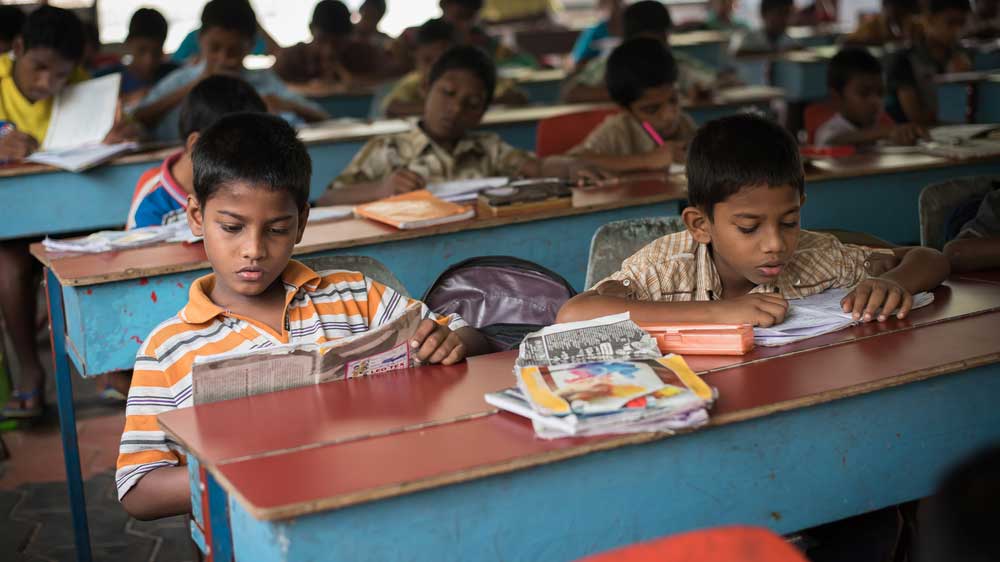Schools prescribing textbooks not recommended by the government or the examination boards should publicly declare that the contents do not promote discrimination based on caste, class, religion, gender, ethnicity or language.
The education ministry has issued “Guidelines on School Safety and Security” covering various aspects of the curriculum. According to the guidelines issued on October 1, the schools should thoroughly scrutinise the textbooks that are not prescribed by the National Council of Educational Research and Training (NCERT) or the state councils of educational research and training (SCERTs) or the exam boards.
The new guidelines, applicable for both private and government schools, have been circulated among states for implementation.
The schools must upload a written declaration on their websites, jointly signed by the manager and the principal in case of private schools and by the principal or the school head in case of government institutions, “to the effect that the school owns the responsibility of having thoroughly checked and having gone through the contents of the books prescribed by the school”.
The schools must ensure that the books prescribed by them do not promote any kind of discrimination based on caste, class, religion, gender, ethnicity or language. The schools must also see to it that the textbooks prescribed by them promote sensitivity towards environmental protection, gender parity, inclusion and ethical behaviour, according to the education ministry.
The books should promote healthy habits of eating, cleanliness and sanitation, reading, working together, helping each other and collaborating instead of indulging competition, the guidelines say.
Prof. Anup Kumar Rajput, a faculty member of the NCERT, said many schools, particularly private, prescribe books of private publishers.
“Very often we get complaints about objectionable content in certain books. These books are mainly brought out by private publishers. If the new guidelines are followed, the problem with respect to content will be addressed,” Rajput said.
He said there was no official agency to certify standards with respect to educational content for schools, like the ISI for industrial products or the FSSAI for food items.
“There is a need for an agency to examine the books as per national standards. Some agency should examine and certify educational instruction materials, including textbooks, videos and audios, before they are prescribed to students,” Rajput said.
A teacher of a private school in New Delhi said private schools often receive money from private publishers to prescribe their textbooks.
“Some principals do deal with publishers for prescribing their books in exchange for some benefits. Sometimes, schools have an open policy on allowing books for benefits,” the teacher said, preferring anonymity.
The education ministry guidelines say the school timetables should have ample time for dialogue, reflection and discussion on school safety, on-road safety, healthy and nutritious food and adolescence issues. Time should also be allotted for training and drills on disaster management.
Classroom learning should take place in an environment where no student feels that he or she is not respected by the teacher or peers on the grounds of language, socio-economic background, caste, creed, gender or abilities, the guidelines say.
As online classes have become the new normal due to the pandemic, the guidelines have cautioned against cyber bullying. Schools should guide students on dos and don’ts and the consequences of engaging in cyber bullying and violence, according to the education ministry.
Each school should set up a safety committee comprising the principal or headmaster, student safety officer, and representatives of teachers, other staff members, parents, students and alumni. The committees will be expected to undertake an inspection of the entire school premises once every quarter to ensure compliance with standard safety measures.











